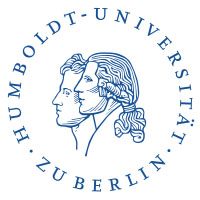Dr Dunstan Lowe, Lecturer in Latin Literature in the Department of Classical & Archaeological Studies, is to talk at a conference entitled ‘Man, Machine, Animal and Monster: The Post-human in Ancient Greek Literature’ on Thursday 27 October at Humboldt University, Berlin.
Post-humanism is currently one of the most popular philosophical trends. However, its applicability to ancient Greek literature has not yet been sufficiently examined.
Dustan’s talk, entitled ‘The Tyranny of the Body: Ancient Autocracy Versus the Human Form’, asks if we sought the post-human in classical antiquity, where would we find it? The conference suggests many places: among them is the figure of the ‘tyrant’, as portrayed by historians from Herodotus onward: the tyrannos unshackled from human ethics, human justice, and human social systems. Although the ‘posthuman tyrant’ is only an occasional artifact of various histories of Ancient Greece, seemingly contained by narrative logic and moralistic frameworks, Dunstan argues that tyranny provided a conceptual model not only for the inhuman, but also for the post-human. We can detect this in the earliest phase of Hellenic historiography. Later, in Hellenistic and Imperial sources, it gave rise to increasingly graphic expressions as bodies more deeply allegorised minds and souls. These are the conceptual ancestors of various ‘post-human tyrants’ in modern science fiction and fantasy.
Further details of the conference are available at:
www2.gender.hu-berlin.de/ztg-blog/2016/09/konferenz-man-machine-animal-and-monster-the-post-human-in-ancient-greek-literature-berlin-27-28-oktober-2016/

